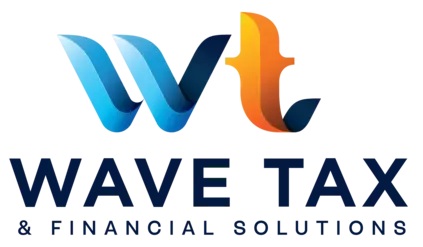A self-employed 401(k) plan, also known as an individual 401(k) plan, serves as a retirement savings option for small business owners without employees, aside from a spouse.
This makes it an ideal choice for sole proprietors, independent contractors, partnerships, and sole proprietorship corporations seeking a retirement plan comparable to those available in larger organizations.
➡️ In essence, the self-employed 401(k) functions similarly to a traditional 401(k) plan.
As the employer, you can contribute on your own behalf as an employee using pre-tax income, and you also have the option to make employer contributions.
These contributions can be pooled together to invest in various vehicles, allowing for tax-deferred growth until retirement withdrawals are made.
You may also read: IRS Announces Increased Estate and Gift Tax Exemption for 2025
401(k) Contribution Limits for the Self-Employed
A key feature of the self-employed 401(k) plan is the dual contribution capability. According to the 2024 IRS contribution and profit-sharing limits for 401(k) plans, as an employee, you can defer contributions up to the lesser of $23,000 or 100% of your compensation.
If you are 50 years old or older in 2024, you can enhance your savings with an additional $7,500 in catch-up contributions annually. Additionally, as an employer, you can contribute up to 25% of your compensation each year.
The total contributions to an individual’s account, including catch-up contributions for those over 50, cannot exceed $76,500 in 2024. For individuals under 50, the total contribution limit is capped at $69,000.
These contributions can lead to substantial annual savings. For instance, if you are an independent consultant under the age of 50 (without employees) earning $100,000 in 2024, you have the option to defer up to $23,000.
Additionally, as an employer, you can contribute another $25,000 based on your earnings after deducting business expenses and self-employment taxes. This means you could potentially save a total of $48,000 in a single year to enhance your retirement savings.
Contributions made by self-employed individuals to a 401(k) plan may also be eligible for extra tax benefits. If your business is not incorporated, you can typically deduct your contributions from your personal income.
Conversely, if your business is incorporated, these contributions can be classified as a business expense.

Establishing a 401(k) Plan for Self-employed Individuals
If you determine that a self-employed 401(k) plan is suitable for your needs, you can set it up through a financial institution that specializes in administering 401(k) plans.
These plans are generally easier to manage than traditional 401(k) plans since they usually involve only one or two participants.
Consequently, the associated fees tend to be lower, and some institutions may waive set-up or maintenance fees for self-employed 401(k) plans.
➡️ When evaluating potential 401(k) plans, at Wave Tax we always suggest to be fully informed about all relevant fees before enrolling.
It may also be beneficial to select a plan that provides a diverse array of investment options, such as mutual funds, stocks, bonds, ETFs, and certificates of deposit.
Once your plan is established and you have determined your contribution levels and investment choices, it is essential to maintain thorough records.
🛑 There is no minimum annual contribution requirement, allowing you to increase contributions during profitable years and reduce them when your business requires more cash flow.
If your account balance exceeds $250,000 at the year’s end, you decide to terminate the plan, or you identify a qualifying employee, you may be required to submit one of the IRS 5500 series forms for tax compliance.
Withdrawing Funds from a Self-Employed 401(k) Plan
Similar to traditional 401(k) plans, the self-employed 401(k) plan is designed to assist you in saving for retirement, and it includes regulations that promote this goal.
🔎 For instance:
- Distributions may be allowed following a “triggering event,” which generally includes death, disability, plan termination, or reaching the age of 59 1/2 or older; however, these distributions may incur a 10% early withdrawal penalty in addition to applicable income taxes.
- Once you reach age 72, you are required to begin taking minimum distributions from your self-employed 401(k) plan.
- These plans can be designed to permit loans or hardship withdrawals.
- They can accept rollovers from other retirement accounts, such as SEP IRAs and traditional 401(k) plans, into your self-employed 401(k) plan. More information on rollover options for the self-employed is available.
- In the case of a triggering event, you have the option to roll over your self-employed 401(k) plan assets into another 401(k) plan (if the receiving plan allows rollovers) or into an IRA.
✅ Due to its high contribution limits, flexible investment choices, and relatively straightforward administration, at Wave Tax we strongly believe the self-employed 401(k) plan is an appealing choice for small business owners or freelancers looking to save significantly for their future.
Anticipating the Future
If you anticipate the potential for expanding your workforce in the future, it is important to understand that you will need to transition your self-employed 401(k) plan to a traditional 401(k) plan or terminate it.
Conversely, if you are confident in maintaining your status as a sole proprietor and wish to take advantage of the significant savings opportunities these plans provide, this type of account could be a suitable choice.
📌 Whatever your case may be, at Wave Tax we are here to offer you the best financial advice for you and your business.
📍Do not delay in contacting us at info@wavetax.us

